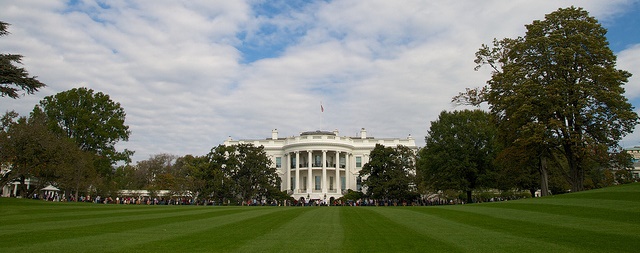
Trump’s surprising election victory has alarmed many in the United States and other countries, but the practical tenor of his recent remarks, notes Senior Fellow Tsuneo Watanabe, should dispel fears of a major disruption in America’s global commitments.
* * *
Donald Trump’s stunning upset has sent many people into shock, both in the United States and the rest of the world. One fear is that the deeply divisive rhetoric of Trump the candidate will continue even after he enters the White House, further polarizing the conservatives and liberals and crippling America’s ability to lead. Another is that the policy direction of his presidency remains unclear owing to his failure to substantively address broader policy issues during the campaign.
These two factors, though, are precisely what propelled him to victory. His antiestablishment remarks struck a chord among lower-income white voters, especially along the Rust Belt, who were deeply frustrated with both the Republican and Democratic Parties. And while criticizing existing and planned free-trade agreements, such as NAFTA and the TPP, for taking away American manufacturing jobs, he kept mum on tax reforms that could significantly alleviate the wealth gap—much to the relief of moneyed, traditional Republican supporters—calling instead for lower corporate taxes and the repeal of Obamacare.
Going forward, Trump is unlikely to alienate America’s elites, despite the expectations of angry, anti-establishment voters who were instrumental in putting him in office. In fact, neither the president-elect nor his inner circle is committed—economically or socially—to addressing the concerns of blue-collar workers and instead has interests that are much more aligned with those of the establishment.
Promising Developments
While this contradiction could pose difficulties for the administration, it is something that will reassure many in Japan, whose interests also overlap those of the US establishment. That Mike Pence, who embraces traditional Republican values and has emphasized the importance of American allies and free trade, has been named to lead the transition team should be welcomed here, as it will help smooth over ties with mainstream Republicans, including House Speaker Paul Ryan.
Another promising development is news that Mike Flynn is being considered for the post of national security advisor, which would enable the retired Army lieutenant general and former director of the Defense Intelligence Agency to emphasize the importance of maintaining continuity in America’s defense policy.
The TPP, though, could fall victim to Trump’s need to address voter frustrations, given that he is unlikely to introduce taxes that would narrow the wealth gap or to attempt to reverse the wave of globalization. This may be the only significant difference, though, with the trade policies of the Barack Obama administration.
Japan’s chief interests are in keeping Washington engaged in international affairs and in ensuring that the global economy remains open and free. On that score, there is probably no need to fret over his surprising election victory or to take his brash campaign remarks too literally. That said, there is lingering concern over whether Trump can acrobatically manage to keep the profound contradictions in his administration from tripping him up. Both Americans and the rest of the world will continue to closely follow how the transition unfolds, keeping their fingers crossed that the Trump presidency will ultimately be marked by stability and effectiveness.
